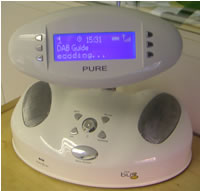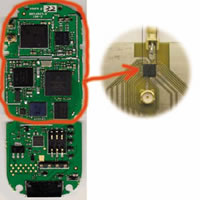 Few topics are as hot as mobile music right now, with the Midem Mobile Music Forum the place to be on the subject. Panelists touched upon several important areas, with all attempting to understand the future direction of explosive medium. Once again, Digital Music News was on the ground to capture the chatter.
Few topics are as hot as mobile music right now, with the Midem Mobile Music Forum the place to be on the subject. Panelists touched upon several important areas, with all attempting to understand the future direction of explosive medium. Once again, Digital Music News was on the ground to capture the chatter.
Just who is buying all of those ringtones and downloads through their phones? A knee-jerk reaction seems to always point to the younger buyer, though many close to the space are seeing activity from the older buyer. During one of the mobile music panels, Martin Peronnet (Content Director, Mobile/i-mode division of French operator Bouygues Telecom) declared that 15% of his customers are in the 35 -40 age bracket. That is a total of one million customers, with many among the most active subscribers. Others revealed similar data, with Universal Mobile Chairman Cédric Ponsot announcing the launch of a series of oldies realtones, based on major hits from the 60s. Clearly, ringtones aren`t just for kids.
With the mobile music space expanding, where do things go from here? Many were convinced that 2005 will be the breakout year for the space, with new services like full song downloads on the horizon. But many attendees urged their peers to remain focused on ringtones, the most lucrative aspect so far. Meanwhile, projections were bandied about, with event chairman Ralph Simon forecasting a $11.2 billion space by 2008 .
But more money can sometimes bring more problems, with operators, publishers, and labels swimming in disagreement. Vodafone Global Marketing Director Guy Laurence gave a clear warning to the music industry when he declated that “the music industry needs to sort out the mess between publishers and labels and figure out who owns what during the next quarter. It is the consumers that matter. The bickering has to stop.” In another panel, Chrysalis Group Chief Executive Richard Huntingford expressed his concern about Vodafone exerting too much control. “What do they know about music?” he asked, calling for the music producers to unite their efforts. Orange Marketing Handset Services & Solutions Director Pascal Thomas called for mutual collaboration, reminding attendees that the CD has been around for 20 years with almost no innovation, while the mobile business is rapidly deploying new products.
 Napster, one of the largest players in music downloads, is considering offering a film download service. The new service would sit alongside its music offering and help to give the company a competitive edge over its rivals. The technology is already in place to download movies, so the same service model could easily apply to films, television programmes and video games, now that broadband connection speeds are getting faster and more prevalent.
Napster, one of the largest players in music downloads, is considering offering a film download service. The new service would sit alongside its music offering and help to give the company a competitive edge over its rivals. The technology is already in place to download movies, so the same service model could easily apply to films, television programmes and video games, now that broadband connection speeds are getting faster and more prevalent. Shanghai-based Fudan University has developed the country’s first home-made digital TV chip. Not only that, but the chip has passed appraisals by experts from the Chinese Academy of Sciences and Chinese Academy of Engineering, and it’s outperformed European and US standards in terms of sensitivity and anti-jamming capacities – at lower costs.
Shanghai-based Fudan University has developed the country’s first home-made digital TV chip. Not only that, but the chip has passed appraisals by experts from the Chinese Academy of Sciences and Chinese Academy of Engineering, and it’s outperformed European and US standards in terms of sensitivity and anti-jamming capacities – at lower costs. The all-time classic Nokia game, Snake, has now hit their gaming platform, the N-Gage. Best of all it’s free to download.
The all-time classic Nokia game, Snake, has now hit their gaming platform, the N-Gage. Best of all it’s free to download.  PURE Digital announced today that it’s offering support for an Electronic Programme Guide (EPG) for the Bug DAB digital radio.
PURE Digital announced today that it’s offering support for an Electronic Programme Guide (EPG) for the Bug DAB digital radio.  Texas Instruments (TI) has announced they will bring a integrated single-chip solution for mobile phones.
Texas Instruments (TI) has announced they will bring a integrated single-chip solution for mobile phones.  Video Networks Ltd (VNL), who run the UK VOD service, HomeChoice, will be doubling the speed of their broadband service from 1st February, at no extra cost.
Video Networks Ltd (VNL), who run the UK VOD service, HomeChoice, will be doubling the speed of their broadband service from 1st February, at no extra cost.